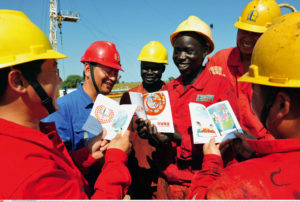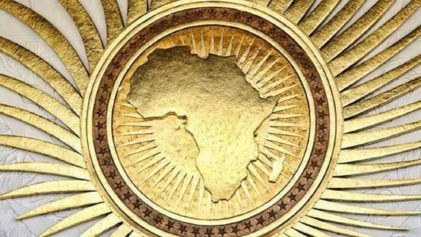To do business in Africa, and by that extent the developing world, will generally require some things:
10 percent will be your product or service;
25 percent will be your connections and network;
25 percent will be your financial backbone;
40 percent will be PATIENCE.
It has been recognized that when numerous Western business and political analysts look at China’s impact and presence in Africa, many are perplexed at how influential the country has become in such a short time. They tend to believe that much of this is due to China’s ability to bribe officials and lack of concern for social responsibility and the environment. While some of this may be true, history has shown that Western companies have been equally as corrupt in regards to bribery and utter lack of concern for the environment in the developing world as evidenced by major multinational corporations and banks, ranging from Barclays, Chiquita Banana and Dow Chemical/Union Carbide (Bhopal).
Thus it cannot be categorically said these are the reasons why Chinese trade with Africa stands at $200 billion and the country has invested $75 billion into Africa, in comparison to the U.S.’s $14 billion investment.
Based upon my observations of living in Africa as an American businessman and of numerous discussions with politicians, government officials and other businessmen, one of the main reasons why China beats out America is because of patience. They simply don’t become as frustrated by how slow things move in Africa (and believe me, things can move agonizingly slow) and walk away.
There’s a quote famously attributed to Chairman Mao Zedong when asked to give his opinion on the French Revolution of the late 18th century. He is reported to having said “It’s too early to judge.” Whether this quote has been translated properly or even mistranslated properly, it reflects the level of patience the Chinese business and investment community have with doing business in Africa.
If you’ve spent a good deal of time in Africa, you’ll inevitably meet or come across Chinese managers and workers. Once you’ve met them and get to know their story, you’ll learn that they’re not high-level managers who are making decisions. In fact, many of them are low-level employees, whose primary purpose is to follow a project, contract or tender and then document the process to keep things moving. In some cases, this can last for months, and, in many cases, they can be there for years. It’s not uncommon for one person or small team to stay in Africa for months or years, and if a new top guy is brought in, he’s updated on all connections and networks and takes over from there.
To date, some of the major development projects China is undertaking across Africa are:
Standard Gauge Railway Project in Kenya ($3.6 billion)
Ethiopian Light Railway ($475 million)
Nigerian Railway project (estimated $12 billion)
These projects signify years of managers and office staff living in Africa to maintain a presence and to identify who are the right people to work with. They also gain an understanding of the on-the-ground political situation and are sure the company’s interests are being maintained and represented over time.
To gain an idea of how many Chinese are in Africa, if one were to visit any major African city, or even midsize city, you can find Chinese restaurants, which cater specifically to Chinese customers. In some cities, there are even Chinese-run hotels, which are almost exclusive to Chinese customers. Thus, it is well known that many Chinese have based themselves in Africa and are in a waiting game for projects, all the while providing their superiors back home with regular updates and progress reports.
Upon development, these opportunities represent a tremendous boom down the line for Chinese manufacturers because the overall contract is inherently tied to the use of the Chinese supply chain and specifications. Hence, there is a viable economic impact back home, and, in effect, it assists in creating employment for Chinese workers.
As it relates to the financial aspect of doing business in Africa, the funding mechanisms provided by the Chinese allow the deals to move through smoothly from their side. A harsh reality of investing in Africa is that local governments rarely want to put up any capital to support the investment in their country (and sometimes, they may literally not put up a dime!) What the Chinese Exim Bank and the Chinese Development Bank provide are financial instruments that are practical for many Chinese companies to navigate and facilitate resources for their projects in Africa. American investors and financial institutions do provide reasonable backing for opportunities in Africa, particularly with initiatives such Power Africa, OPIC and the US Exim. However, this leads back to the basic issue that if Americans companies do not have the patience to stay the course, such initiatives are for naught.
Now an American corporate entity or investor would say: Why does it take so much time for an investment to go through if Africa requires investment and has so many needs? I’ve met Western companies who have come to Africa and sought to invest millions of dollars — and one company, who wanted to invest a billion dollars — and leave without any tangible results. Numerous companies and groups have desired to build and develop opportunities in Africa and in many instances, were ready to fully finance the project. However, in far too many cases, the deals were not closed. To this, there simply is no easy or even a good answer. The reality is that in countless situations, many of the government officials investors will be dealing with are far from poor and, in fact, may be quite wealthy themselves. Some for their own reasons, may either be wholly uninterested in investment for their nation or may be looking for some personal benefit. Or it could be a situation in which they may not be in a position to make any serious decisions and are merely there because it’s their job. Thus where Chinese companies have benefited is that by having people on the ground for long periods of time, they are better able to assess the situation and determine which way to turn, which door to knock on and who are the real decision-makers in the process. It should also be noted within Africa, much of the development and infrastructure is inherently tied to politics. Thus, those in governments may only start working around election time, with the hopes that publicizing an investment, this will garner them more support to win votes.
The next question American investors ask: Is it worth it? The answer is a resounding yes. In the past 10 years, six of the fastest-growing economies are in Sub-Sahara Africa. Nations such as Kenya, Nigeria, Ethiopia and Rwanda are attracting major global investors from Europe, Asia and the Middle East. And with a growing middle class and half of the population being under 20 years old, there is a tremendous demand in infrastructure, energy and retail. Thus, if American companies are not in Africa making investments and doing business, then Brazilian, Indian, Spanish, Russian, Emirati, Czech, Polish and, yes, Chinese companies will be there. These companies have learned that while it is not easy to do business in Africa, the profit margins are indeed some of the best in the world.
In essence, the Chinese megaprojects taking place in Africa are not the result of a few months of politicking and greasing some slimy politician’s pockets, well at least not all of them. Many of these projects are based upon plans developed years ago and quite possibly decades ago by a previous government and for whatever reasons, were pushed to the side. However, the Chinese were able to remain patient, gain access to key people, procure development plans and possibly do pre-feasibility studies, which allowed them to adjust their methods and expectations with a long-term view on what it would take to close the deal.
There are two practical suggestions for American companies seeking to enter the African market. The first is to sign an agency agreement with companies based in Africa. Such companies would then become the eyes and ears for the American company and establish a formal presence on the ground. The other idea, which is very effective with Chinese and Indian companies, is to have low-level managers and a small office staff in based in Africa. This model allows the American company to have managers on the ground who understand the home company’s objectives, business model and future goals. In addition, communication would be much clearer and in the grand scope of multi-million and in some cases, billion-dollar contracts, it is indeed a small investment to make.
While American companies have access to some of the best minds and products in the world, if these companies want to establish a larger and a more sustainable presence in Africa, they will have to modify their expectations to fit the environment on the ground. There is still a public perception that Africa is a continent to be avoided and the problems are insurmountable. The reality on the ground is that major development is taking place, and multinational companies from all over the world are investing, building infrastructure and establishing trade links and in return, are bringing in massive profits. Though the current framework of investing and doing business in Africa may be tiring, exasperating and quite vexing, it’s quite simply what is required to do business on the continent. Hopefully these companies will not have to wait a few hundred years to see any results, but if one were to examine the impact of the American Revolution, he might deem it a success and well worth the cost.
Jamal Bradley is an American businessman from Philadelphia, who is currently based in Kenya.



